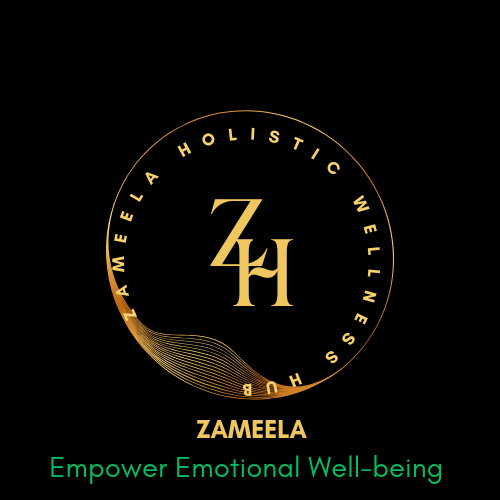Emotional Maturity: 6 Powerful Strategies to Unlock Your Inner Strength in Today’s Fast-Paced World
Unlock Your Potential: 6 Emotional Maturity Strategies for 2024
Emotional Maturity: The Art of Cultivating Wisdom, Resilience, and Inner Peace
While many associate maturities with simply reaching a certain age, emotional maturity is far deeper. It’s a conscious journey of developing the emotional intelligence to navigate life’s complexities with grace, wisdom, and a strong sense of self. This article dives into the essence of psychological maturity, the factors that shape it, and most importantly, how you can cultivate it within yourself.
Emotional Maturity: A Multifaceted Gem
Emotional maturity goes beyond simply controlling your emotions. It’s a multifaceted characteristic encompassing many key aspects:
Emotional Intelligence:
Understanding your emotions, their triggers, and navigating them with self-awareness is a cornerstone of psychological maturity.
Responsibility:
Taking ownership of your actions, choices, and their consequences demonstrates emotional intelligence.
Resilience:
Bouncing back from setbacks with strength and determination is a key sign of emotional intelligence.
Empathy:
The ability to see things from another person’s perspective and understand their feelings is a crucial part of emotional intelligence.
Independence:
Taking care of yourself, both practically and emotionally, without relying solely on others, is a sign of emotional intelligence.
Self-Discipline:
The ability to delay gratification, set goals, and follow through on commitments demonstrates emotional intelligence.
These qualities, woven together, create a foundation for emotional maturity, allowing you to approach life’s challenges with a level head and an open heart.
6 Levels of Emotional Maturity
Emotional maturity isn’t one size fits all! Here are 6 levels, like steps on a ladder:
- Reactive: Feelings rule! People here yell, blame, or shut down when upset.
- Passive-Aggressive: Hidden anger! People might act nice but be secretly mad.
- Self-Aware: Uh oh, my feelings! People start to notice their emotions but struggle to manage them.
- Responsible: Taking charge! People admit mistakes and try to fix things.
- Assertive: Speak your truth! People can express needs clearly and kindly.
- Detached: Finding calm! People can let go of negativity and focus on peace.
The Shaping Forces: Understanding What Makes Us Tick
Our journey towards emotional maturity is influenced by a multitude of factors. Here are some key players:
Upbringing:
The environment we grow up in significantly shapes our emotional intelligence and coping mechanisms. A supportive and nurturing home fosters a sense of security and self-belief, laying the groundwork for emotional maturity.
Life Experiences:
Challenges, triumphs, and even failures act as potent teachers. Overcoming obstacles builds resilience, while successes nurture confidence, all contributing to emotional maturity.
Focus on positive influence:
Our social circles shape who we become. Surround yourself with positive and supportive people to cultivate emotional maturity. Positive, supportive relationships encourage emotional growth and responsible behavior, fostering emotional maturity.
Understanding these influences empowers you to take charge of your path. By consciously seeking out positive experiences and nurturing healthy relationships, you can create a fertile ground for emotional maturity to blossom.
The Path to Proficiency: Cultivating Emotional Maturity

Now, how can we actively cultivate psychological maturity? Here are six powerful strategies:
Embrace Reality:
Life throws curveballs. Accept the circumstances you can’t control and focus on what you can. This doesn’t mean passive acceptance; it’s about acknowledging reality and working with it to create a better future. This fosters emotional maturity by allowing you to manage your emotions effectively in the face of challenges.
Master Your Emotions:
Emotional intelligence is a cornerstone of Psychological Maturity. Learn to recognize your emotions, understand their triggers, and develop healthy coping mechanisms. This empowers you to respond thoughtfully to situations rather than react impulsively.
Ditch the Snap Judgments:
Jumping to conclusions clouds your judgment and hinders Psychological Maturity. Take time to gather information, consider different perspectives, and make informed decisions. This allows you to approach situations with a level head and avoid emotionally charged reactions.
Prioritize Your Mental Health:
Your mind is your most precious asset. Practice healthy habits like meditation and mindfulness to manage stress and cultivate inner peace. Taking care of your mental well-being strengthens your emotional foundation.
Rise Above the Noise:
Not every fight deserves your energy. Learn to disengage from pointless conflicts and focus on maintaining peace within yourself and your relationships. This demonstrates emotional maturity by choosing your battles wisely and prioritizing emotional well-being.
Find Your Inner Spark:
True happiness comes from within. Pursue activities that bring you joy, develop your passions, and build a sense of self-worth that doesn’t rely on external validation. A strong sense of self fosters Psychological Maturity by giving you a foundation of self-confidence and emotional security.
Think of Psychological Maturity like a mountain climb. There’s always room to keep growing, even after reaching new heights. The journey to Psychological Maturity is like a hike. There will be bumps in the road, but the view from the top is worth it. But with consistent effort and a commitment to self-growth, you’ll find yourself navigating life’s challenges with greater ease, fostering deeper connections, and experiencing a profound sense of inner peace.
Signs you are Emotionally Mature
Here are some signs you might be emotionally mature:
- Chill Out: You can stay calm even when things are tough and talk things through instead of freaking out.
- Own It: You take responsibility for your actions and apologize when you mess up.
- Good Listener: You can listen to what others are feeling without getting mad or defensive.
- Team Player: You’re willing to compromise to find solutions that work well for everyone.
- Let Go: You can forgive others and move on from past arguments.
The Power of Psychological Maturity: A Life Transformed
Emotional maturity isn’t about becoming emotionless. It’s about embracing life’s experiences with grace, wisdom, and a deep respect for yourself and others. It’s about building a fulfilling life filled with meaningful relationships, personal growth, and the unwavering strength to face whatever comes your way.
As you cultivate Psychological Maturity, you’ll discover a newfound sense of freedom. You’ll be free from the shackles of impulsive reactions, the freedom from the need for constant validation, and from the burden of unresolved past experiences. This liberation allows you to fully engage with the present moment, to savor the good times and navigate the tough ones with a sense of calm determination.
A Testament to Growth: Psychological Maturity and the Human Spirit:
The power of Psychological Maturity extends far beyond the individual. It fosters a ripple effect, impacting the lives of those around you. Emotionally mature individuals inspire trust and respect. They build healthy, supportive relationships based on empathy, effective communication, and a willingness to compromise. They become pillars of strength for their families and communities, offering guidance and support without judgment.
In a world that often values instant gratification and fleeting trends, Psychological Maturity stands as a beacon of stability and resilience. It’s a testament to the human spirit’s ability to learn, grow, and adapt.
Embrace the Bloom: The Rewards of Emotional Maturity Await:
As you embark on this journey of cultivating Psychological Maturity, remember, it’s never too late to begin. Embrace the challenges, celebrate the victories, and most importantly, never stop learning and evolving. The rewards of a life filled with emotional maturity – a life filled with purpose, peace, and connection – are worth every step of the way. So, take a deep breath, commit to the journey, and watch as you blossom into the best version of yourself.
Additional Tips for Cultivating Emotional Maturity

Practice Self-Reflection: Regularly take time to reflect on your thoughts, feelings, and actions. Journaling or mindfulness exercises can be helpful tools for this. By understanding your own patterns, you can identify areas for growth and make positive changes.
Embrace Vulnerability:
Sharing your feelings and experiences with trusted friends or a therapist can be a powerful way to gain self-awareness and develop emotional maturity.
Practice Forgiveness:
Holding onto anger and resentment will only hinder your emotional growth. Learn to forgive yourself and others and let go of negativity.
Celebrate Small Victories:
Acknowledge your progress, no matter how small. Celebrate your moments of self-control, empathy, and clear communication. This reinforces positive behaviors and motivates you to continue on your journey.
Emotional maturity is a lifelong pursuit, but the rewards are immeasurable. By embracing the journey and actively cultivating this quality, you’ll find yourself better equipped to navigate life’s challenges, build stronger relationships, and experience a deep sense of peace and fulfillment.
7 Signs of Emotional Maturity
Here are 7 signs of someone who might be emotionally mature:
- Chill Zone: They can stay calm even when upset and talk things through instead of yelling or crying.
- Own Up: They take responsibility for their mistakes and apologize when they mess up.
- Listen Up: They can listen to others’ feelings without getting defensive or angry.
- Win-Win: They can compromise and find solutions that work for everyone.
- Move On: They can forgive others and let go of anger from the past.
- Open Mind: They’re willing to learn new things and try new experiences.
- Self-Love: They feel good about themselves without needing constant validation from others.
Emotional Maturity in Relationships
Emotional maturity in relationships means you can handle your feelings in a healthy way. This means you can talk about them calmly, even when you’re upset. You can also listen to your partner’s feelings without getting mad.
Being emotionally mature also means taking responsibility for your actions and saying sorry when you mess up. It means being able to compromise and find solutions together, even when you don’t see eye-to-eye.
Emotionally mature couples are supportive of each other and happy for each other’s successes. They build each other up instead of bringing each other down.
Emotional Maturity vs Immaturity
Emotionally mature people act like grown-ups with their feelings. They can calm themselves down and talk things through, even when they’re frustrated. They take responsibility for their mistakes and try to learn from them.
Immaturity is like being a kid with your feelings. You might yell, pout, or blame others when you’re upset. It’s hard to listen to other people’s feelings and you might struggle to say sorry. Immature people might be jealous of others’ success and bring them down.
Characteristics of Emotional Maturity Person
Emotionally mature people are like masters of their feelings! They understand their emotions and can handle them in healthy ways. They can calm down when upset, instead of yelling or crying. They also know it’s okay to feel happy, sad or angry, and they can express themselves clearly without being mean. These folks are responsible for their actions and admit mistakes. They’re also great listeners who can see things from other people’s points of view.
7 Signs of Emotional Immaturity
Here are 7 signs someone might be emotionally immature:
- Meltdowns: They overreact with anger, sadness, or jealousy instead of talking things through calmly.
- Blame Game: They never take responsibility for their mistakes and always point fingers at others.
- Need for Constant Reassurance: They constantly seek approval and get upset if not the center of attention.
- All Talk, No Action: They make promises but don’t follow through, leaving others disappointed.
- Holding Grudges: They can’t forgive and forget, letting past arguments ruin the present.
- Seeing the World in Black & White: They struggle with shades of gray, thinking things are all good or all bad.
- Fear of Change: They resist trying new things and get stuck in their comfort zone.
Emotional Maturity in Adults
Adults who are emotionally mature are good at understanding their feelings. They know it’s okay to feel happy, sad, or angry, but they can handle these feelings without getting out of control. They can talk about what’s bothering them in a calm way and listen to others without getting upset.
These grown-ups take responsibility for their actions. If they make a mistake, they admit it and try to fix it. They are also willing to compromise, which means finding solutions that work for everyone, even if they don’t always get their way.
Conclusion:
The journey to emotional maturity is a lifelong pursuit, but the rewards are immeasurable. As you cultivate this essential quality, you’ll navigate life with greater ease, build stronger relationships, and experience a deep sense of peace. Embrace the challenges, celebrate the victories, and never stop growing. Psychological Maturity isn’t just about you; it creates a ripple effect, impacting those around you. Start today and witness the transformative power it holds for your life and the world.



I’m not that much of a online reader to be honest but your
sites really nice, keep it up! I’ll go ahead and bookmark
your website to come back later. Cheers